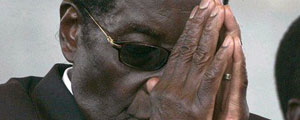
The draft Constitution is now a public document and will soon be subjected to a referendum on March 16 as recently announced by Constitutional and Parliamentary Affairs minister Eric Matinenga.
Column By John Makamure
In this Part One of my article I will attempt to shed more light on some of the provisions in the draft that I believe will enhance the legislative powers and independence of Parliament in line with the principle of separation of powers between the legislative branch, executive branch and the Judiciary.
I am pleased that Section 117 (1) of the draft Constitution now clearly prescribes that legislative authority derives from the people. This should improve the Legislature’s accountability to the people if one compares this provision with Section 32 of the current constitution which says “The legislative authority of Zimbabwe shall vest in the Legislature which shall consist of the President and Parliament”.
The Draft limits the President’s power to make laws. Section 32(2) of the current Constitution provides that the Legislature may confer “legislative functions on any person or authority.” One example of such delegations is Presidential Powers (Temporary Measures) Act (Chapter 10:20) that empowers the President to make laws on virtually any subject, if he thinks urgent action is needed in the general public interest.
However, the Draft expressly provides that “Parliament’s primary law-making power must not be delegated.” The President’s part in enacting laws is limited to signing Bills. Law-making is reserved solely for Parliament. This is a welcome improvement if the proposed provisions are read to mean that the Presidential Powers (Temporary Measures) Act and some old colonial Acts (like the Control of Goods Act (Chapter 14:05), the Exchange Control Act (Chapter 22:05), the Animal Health Act (Chapter 19:01) and the Plant Pests and Diseases Act (Chapter 19:08), which give the President extensive legislative powers, become unconstitutional.
Parliamentary Legal Committee Reports The draft has added teeth to the Parliamentary Legal Committee (PLC) reports on bills and statutory instruments. Where the National Assembly or Senate agrees with a PLC report that a provision in a statutory instrument is unconstitutional, the Clerk of Parliament must report such resolution to the authority which enacted the instrument.
Within 21 days of such notice, the authority in question must either apply to the Constitutional Court for a declaration that the statutory instrument is constitutional or repeal the statutory instrument. So the Constitutional Court has the final say and not the President and the Minister who enacted the statutory instrument.
- Chamisa under fire over US$120K donation
- Mavhunga puts DeMbare into Chibuku quarterfinals
- Pension funds bet on Cabora Bassa oilfields
- Councils defy govt fire tender directive
Keep Reading
If the National Assembly or Senate agrees with a PLC report that a provision of a statutory instrument is ultra vires the enabling Act, the ultra vires provision ceases to have effect and the Clerk of Parliament is obliged to publish a notice in the Gazette giving public notice of the resolution and its effect. In so doing, the Draft departs from and improves on the provisions of the current Constitution, which require that the President act to strike down the unconstitutional or ultra vires statutory instrument or provision thereof.
Where the President considers a Bill referred from Parliament to be either unconstitutional or has any reservations about the Bill, the President, when returning the Bill to Parliament, is now required to furnish written reasons for sending back the Bill. In the current Constitution, the President doesn’t have to state reasons for returning a Bill to Parliament.
Furthermore, if the President still has reservations about a Bill that he previously referred back to Parliament, he must either assent to the Bill or refer it to the Constitutional Court for advice on the Bill’s Constitutionality. Under the current constitution, when the President and Parliament disagree on a specific Bill, the President can dissolve Parliament.
While it is most welcome that the Constitutional Court and not the President has the final say on the constitutionality of a Bill, I am however concerned that the resolution to send it back to the President requires two-thirds majority. I would have preferred simple majority just like when the Bill was passed the first time. Two-thirds majority is difficult to amass in the current political context, meaning that the President’s position will prevail at the end of the day.
Another major legislative process weakness in the draft — as does the current Constitution — is that it does not provide for consequences of the President’s failure to assent to and sign a Bill referred from Parliament or return the Bill to Parliament within the required 21 days.
John Makamure is the Executive Director of the Southern African Parliamentary Support Trust writing in his personal capacity. Feedback: [email protected]











